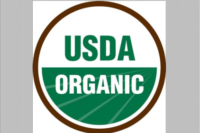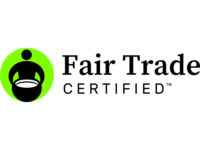Organic Trade Association launches fraud prevention program
The program represents a major step by the organic industry to fight fraud.

The Organic Trade Association said it launched the Organic Fraud Prevention Solutions program. Organic businesses may now voluntarily pre-enroll in the program to help minimize or eliminate organic fraud both inside and outside of the United States.
The new program is based on the Organic Trade Association's tested and completed “Organic Fraud Prevention Guide,” which provides businesses engaged in organic trade with a risk-based process for developing and implementing organic fraud mitigation measures.
"Fraud in the global organic supply chain poses a significant threat to the integrity of the organic brand," said Laura Batcha, CEO and executive director of the Organic Trade Association. "For the past two years, the Organic Trade Association has prioritized significant time and resources into organic fraud prevention solutions.
“We are fighting fraud on many fronts, including through the 2018 Farm Bill and through private sector initiatives,” she continued. “The more companies that join this industry-driven program, the stronger the organic supply chain will be."
The global organic market has been on a steady rise for more than two decades, and has never been bigger, the association noted. It is now an almost $90 billion market, with the American organic market alone accounting for close to $50 billion. Organic imports into the United States in 2017 totaled around $2.1 billion, up nearly 25% from the previous year. In recent years, however, investigations have revealed imported products fraudulently labeled as organic, and gaps in the complex organic supply chain.
The program is not a certification or verification program, nor is it a product label, the Organic Trade Association said. Instead, it is a quality assurance program designed to complement and reinforce USDA's organic standards and the work of the accredited certifying agencies.
"Everyone plays a role in preventing organic fraud," said Gwendolyn Wyard, vice president of regulatory and technical affairs for the Organic Trade Association and staff coordinator for the association's Global Organic Supply Chain Integrity Task Force, the 48-member task force formed two years ago to develop the fraud prevention program. "It is critical that organic businesses have robust systems and measures in place that adequately support the promise of providing organic products that people can trust."
To pre-enroll, a company must be an Organic Trade Association member and either certified organic or listed with a USDA-recognized Material Review Organization such as the Organic Material Review Institute. Eligible operations include farmers, handlers, processors, distributors, traders, retailers and input manufacturers. There are also opportunities for accredited certifiers, consultants and advisors that would like to partner in the program. Pre-enrollment initiates the process, the association said, and signs the eligible company up for the first offered training in late summer or early fall.
For more information, visit https://www.ota.com/OrganicFraudPrevention.
Looking for a reprint of this article?
From high-res PDFs to custom plaques, order your copy today!



-(1).jpg?height=200&t=1730769025&width=200)

